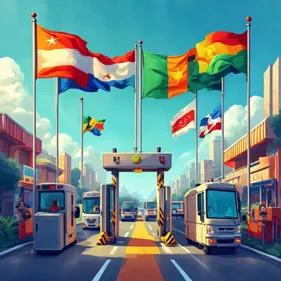dynamics
Huai Jinpeng Keynote at 2025 World Digital Education Conference

On May 14, 2025, the World Conference on Digital Education commenced in Wuhan, with a focus on the transformative potential of technology in education. The event featured a keynote speech by Minister of Education Huai Jinpeng, who addressed the theme 'Jointly Moving Toward the Intelligent Era to Promote Education Development and Transformation.' This gathering marks a significant milestone in global discussions about the future of education in a digital age.
Huai Jinpeng emphasized the Chinese government's commitment to advancing digital education, citing President Xi Jinping's repeated calls for progress in this area. These directives provide a roadmap for leveraging digital tools to enhance educational quality and accessibility. The minister highlighted a growing trend among nations worldwide to embrace digital education reforms, which includes the exploration of artificial intelligence to revolutionize learning and teaching practices.
During his address, Huai Jinpeng acknowledged the profound changes brought by a new wave of scientific and technological advancements, particularly in artificial intelligence. This shift is not only altering industrial landscapes but also redefining education by changing the ecosystem in which it operates. He called for a collaborative effort to build a robust ethical framework around AI and urged stakeholders to focus on creating an inclusive and beneficial digital education ecology.
The minister posed a pressing question for this era: 'What is education in the age of intelligence?' This inquiry reflects the wider challenges and responsibilities that educational institutions face in adapting to rapid technological changes. He affirmed that China's recent educational policy initiatives will harness artificial intelligence to facilitate transformative changes, fostering a new standard for global educational practices.
Huai Jinpeng outlined key strategies to navigate this new educational landscape. Firstly, he stressed the importance of a human-centered approach that prioritizes the intellectual and emotional development of students, emphasizing interdisciplinary education that merges technological and humanistic learning. Secondly, he called for integrating intelligent technologies deeply into educational frameworks, from developing future teachers to reimagining learning environments and methodologies.
Moreover, he urged for the optimization of the educational ecosystem, which involves enhancing institutional frameworks that promote the use of AI in educational contexts. Increasing resource availability and pilot programs will be essential components of this strategy to ensure equitable access to quality education.
Additionally, Huai Jinpeng highlighted the importance of ethical considerations in AI's integration into education, advocating for clear standards and guidelines that protect students and guide responsible use of technology. This focus aims to address the potential risks associated with AI while encouraging students to engage with technological tools critically and innovatively.
Finally, the minister reiterated the necessity for open international cooperation in digital education efforts. By fostering collaborations that share knowledge and resources, countries can collectively tackle common challenges and promote governance in digital education, ultimately enhancing the global learning experience.
Border Inspection Agencies Mobilized for Dragon Boat Festival
2.15M people expected daily at ports during Dragon Boat Festival, up 12.2% from last year; peak on June 1.
AI Study Abroad Partner Now Available to Assist You
Beijing ICP No. 05064741-1; Beijing Public Network Security No. 11010802035725.
Rumiko's Guide Unveils Your Happy Hometown Adventure
Beijing ICP No. 05064741-1; Beijing Public Network Security No. 11010802035725.


